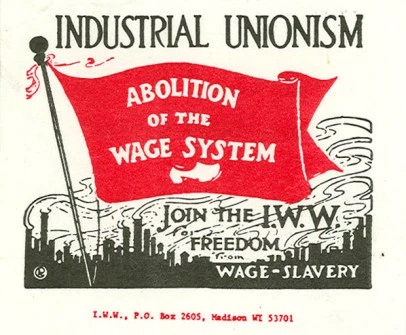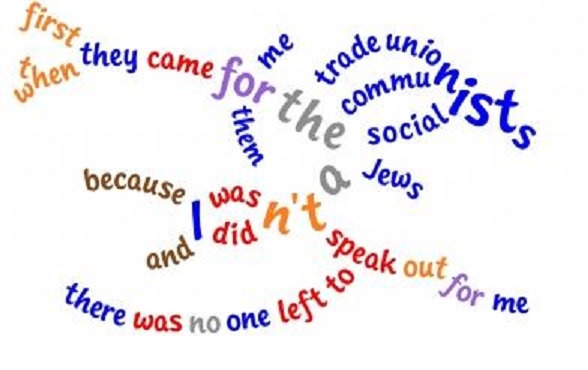“My client wasn’t even IN the bar the evening of the murder, and if he WAS there, he doesn’t even OWN a gun! If he DOES own a gun, he didn’t have it with him that evening, and if he DID have it with him, it wasn’t loaded! Even if it WERE loaded, he didn’t use it – he didn’t even KNOW the victim. If he DID know the victim, he liked him, and if he didn’t like him, he at least didn’t kill him. But if he DID kill him, it was self-defense. And if it wasn’t self-defense, he still had a very good reason. Otherwise, he’s crazy and can’t be held accountable. Come on, he was carrying around a loaded gun – what sane person DOES that?!
I’ve told you that one way or the other he’s innocent – and all you can do is call me names? That’s so hurtful!”
 It is difficult for those of you with the slightest shred of decency to appreciate how the law and politics work. They do not operate according to anything most of us consider reasonable, moral, or even explicable. In the past they didn’t have to. Those affected had little expectation of being fully informed and no real control of the outcome.
It is difficult for those of you with the slightest shred of decency to appreciate how the law and politics work. They do not operate according to anything most of us consider reasonable, moral, or even explicable. In the past they didn’t have to. Those affected had little expectation of being fully informed and no real control of the outcome.
Modern American politics has even less decency, but for different reasons. Most of us are too busy to keep up or sort it all out, and too quick to share or retweet anything with a headline confirming what we want confirmed or feigning outrage over whatever we find outrageous. Or maybe we’re just too stupid and easily distracted.
Not criticizing here – just keeping an open mind about possible explanations.
It’s amazing to me how easily we roll our eyes or exclamate our declamations over things done in the past – successfully, for centuries – and yet find it inconceivable the same things may be happening today, because… well, that’s CRAZY!
What, exactly, is it you think has changed about either mankind or the nature of power? Please – I’ll wait.
…
…
…
Hello?
The South attempted to secede and lost. The war destroyed lives and property on both sides, but the South had the worst of it by far. Reconstruction began, things got weird again.
 And then the South began writing the history of the war and the events which led to it. The war they’d lost. The one fought over a variety of issues, but in which slavery and its continuation were central and essential as defined by the South in the very documents they issued to justify their cause.
And then the South began writing the history of the war and the events which led to it. The war they’d lost. The one fought over a variety of issues, but in which slavery and its continuation were central and essential as defined by the South in the very documents they issued to justify their cause.
Only suddenly the war hadn’t been about slavery at all. In fact, the South was collectively rather wounded at the suggestion! Slavery?! You think – you think this was about SLAVERY?
Imagine what’d they’d have rewritten if they’d WON?
No less an authority than Jefferson Davis began cranking out volumes on the REAL story of the Lost Cause of the Confederacy. Others picked up the theme, and before long their United Daughters (still active today) were tea and cookie-ing this theme across the land.
Historians still argue about the war (they’re allowed to do that still, outside of Oklahoma and Texas) – that’s fine, it’s what they’re supposed to do.
 What’s less tolerable is the fervent hurt and chagrin evidenced by the South’s defenders at the very suggestion that secession had ANYTHING to do with slavery. It’s not that they wish to lay out a reasoned argument, you understand – it’s that they’ve reshaped history and historiography solely through repetition and strong emotion.
What’s less tolerable is the fervent hurt and chagrin evidenced by the South’s defenders at the very suggestion that secession had ANYTHING to do with slavery. It’s not that they wish to lay out a reasoned argument, you understand – it’s that they’ve reshaped history and historiography solely through repetition and strong emotion.
“To suggest secession was about SUH-LAVERY, well it it it’s it’s just… *sniff* DISHONEST!”
The rest of the nation has cooperated, by the way – we don’t like acknowledging our role in making chattel out of humans with souls any more than they do. Better to focus on tariffs and elections and economies and cultures – all persuasive alternatives, since all were involved.
The best deceptions are mostly true, after all – or true but for omissions. That’s how laws are made and history written – so be it.
Why does it matter if the South wishes to save a little face? What’s so wrong with simply focusing on the good parts in our collective history? I mean, the naysayers won their little war and got their way, didn’t they?
Can we at least keep the damn flag without everyone having a hurt-feelings-fit every time?
 My favorite hockey team captain after a tough loss and horrible officiating: “There were some tough calls, but the real problem is that we didn’t take care of business in our own end. We let too many pucks get past us and didn’t take advantage of our opportunities.”
My favorite hockey team captain after a tough loss and horrible officiating: “There were some tough calls, but the real problem is that we didn’t take care of business in our own end. We let too many pucks get past us and didn’t take advantage of our opportunities.”
I hated the poor play, and the poor officiating even more – but my decisive and lingering memory is how much I love the class of my team.
Also, he’s pretty.
More importantly, the team is able to go into practice the next day aware of the things they CAN control, and which led to problems. By acknowledging what they did wrong, instead of merely casting blame, they can improve – or at least that’s the goal.
You may remember the contrast between how Kanye and Beyonce handled this situation:
Swift seems to have recovered and keeps recording albums that sell zillions and zillions of copies. Beyoncé called Swift up to the stage later in the evening to give her back her moment in the spotlight. And West… well, he’s still Kanye (or not – he sometimes likes to go by “Tigerlily” or something else I can’t remember).
The lingering perception is that Kanye is a nut, Beyoncé is a class act, and that apparently Taylor Swift is a country artist (as she mentioned in the full version of her pre-interrupted speech). Reality may differ, but what we remember is what shapes events going forward.
It matters what happened and how it’s remembered because we can’t learn from mistakes we don’t think we made. Left uncriticized, Kanye is just a fighter for justice and Swift a bewildered blonde. Without her subsequent efforts to make things right, Beyoncé could just as easily been remembered as a sore loser, despite winning bigger better things that same night.
If the war was about slavery, and slavery is evil, and the South lost, then the reasonable thing to do is to start trying to repair some of the damage done by slavery. If the war was about a race-based chattel system, then we have some serious introspection to do about ourselves as a people and the extent to which we’ve failed to live up to our own ideals.
 Of course, if the real issues were states’ rights-ish, that’s not as bad. Federalism is about balance, after all, and if perhaps the South got out of balance, that’s clearly rectified now. If anything, the central government is much stronger than originally intended as a result!
Of course, if the real issues were states’ rights-ish, that’s not as bad. Federalism is about balance, after all, and if perhaps the South got out of balance, that’s clearly rectified now. If anything, the central government is much stronger than originally intended as a result!
We can spend some time trying to Reconstruct the South and push for some reforms, but at some point we’re going to need to get back to being a country again. We’ve made our point – let’s let them rebuild and trust whatever gradual progress can be made in terms of race and society.
If the war was about slavery, then both Lincoln and John Brown were right – we’ve paid for our national sin with national bloodshed. Time for a new birth of freedom.
If the war was about different understandings of the Constitution, then might makes right and we won by decimating our enemies by any means necessary. Next time the meaning of our founding documents may swing back a bit the other direction.
If the war was about slavery, then Black America may well need time and support to recover from a sort of collective PTSD. There would be imbalances to correct and scars which may never be quite healed. If we’re willing to go to war with ourselves to keep an entire race of people in degradation and servitude, what must we confess and how might we repent to set a better future course?
If 620,000 men died over tariffs or electoral procedures, then our nation is charted by whichever political and popular mechanizations produce the desired result. If the war was about anything other than slavery, maybe Black people need to just get over it and be less, you know… ‘Black’ about everything.
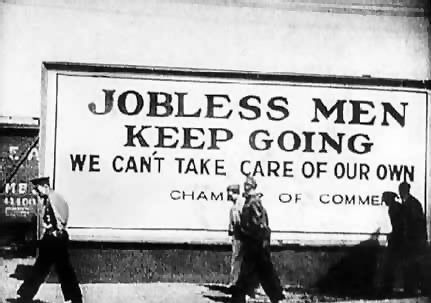 If our ideals are as flawless and our procedures as sound as we clearly wish to promote, then inequity and suffering must stem from personal or cultural failures. If America is ‘exceptional’ in the way those now in power demand we acknowledge, whatever failures have occurred within it are individual and not national. Potential solutions or cures must, logically, come from the same. Anything else is charity. Or enabling. Or corruption.
If our ideals are as flawless and our procedures as sound as we clearly wish to promote, then inequity and suffering must stem from personal or cultural failures. If America is ‘exceptional’ in the way those now in power demand we acknowledge, whatever failures have occurred within it are individual and not national. Potential solutions or cures must, logically, come from the same. Anything else is charity. Or enabling. Or corruption.
We can’t repent of sins we can’t confess, or repair that we are unable to see as broken. This applies across any number of historical and national issues. If we build our actions and beliefs on a foundation of national amazing-ness, the ramifications are much, much larger than which textbooks we adapt or which tests we take to graduate. Conversely, if we believe the human heart – even the American heart – is desperately wicked, and deceitful above all things… who can know it? Well, that leads to humility and grace as we push forward, aware of what we are capable, for good or ill.
 I’ll close with a little Bible talkin’, since that seems to be such a motivator for those pushing a better whitewashing for our lil’uns. Whatever we may disagree on, I wholeheartedly concur that we’ve lost much in our upbringing if we feel the need to run from the wisdom found in small red print:
I’ll close with a little Bible talkin’, since that seems to be such a motivator for those pushing a better whitewashing for our lil’uns. Whatever we may disagree on, I wholeheartedly concur that we’ve lost much in our upbringing if we feel the need to run from the wisdom found in small red print:
“And he spake this parable unto certain which trusted in themselves that they were righteous, and despised others:
Two men went up into the temple to pray; the one a Pharisee, and the other a publican. The Pharisee stood and prayed thus with himself, God, I thank thee, that I am not as other men are, extortioners, unjust, adulterers, or even as this publican. I fast twice in the week, I give tithes of all that I possess.
And the publican, standing afar off, would not lift up so much as his eyes unto heaven, but smote upon his breast, saying, God be merciful to me a sinner.
I tell you, this man went down to his house justified rather than the other: for every one that exalteth himself shall be abased; and he that humbleth himself shall be exalted.”
(Luke 18:9-14, KJV)
If there’s an argument to be had, let’s have it. But let’s base it on our best understanding of the truth and the wisest possible course consistent with our proclaimed ideals – not on what best covers our collective behinds and casts the remaining blame on those least able to carry the burden.

{This Post is Recycled – Reworked from a Previous Version and Reposted In It’s Updated Glory}
RELATED POST: Secession & Superiority (A Little Knowledge Is A Dangerous Thing, Part One)
RELATED POST: Forever Unfit To Be A Slave (A Little Knowledge Is A Dangerous Thing, Part Two)
RELATED POST: History Songs



 Was Lincoln’s election really such a threat to their way of life? Maybe. Not according to Lincoln, it wasn’t, but the new Republican Party openly advocated for restrictions on slavery – particularly in terms of limiting its expansion. Perhaps that was a debate worth having, in the context of the times.
Was Lincoln’s election really such a threat to their way of life? Maybe. Not according to Lincoln, it wasn’t, but the new Republican Party openly advocated for restrictions on slavery – particularly in terms of limiting its expansion. Perhaps that was a debate worth having, in the context of the times. “We don’t like the thinking prompted by your teachers, your books, your visuals. We don’t appreciate you complicating their worlds or ours by introducing problematic ideas. Ignorance is bliss, buddy – our version of reality is good enough, despite its apparent inability to withstand the slightest scrutiny.”
“We don’t like the thinking prompted by your teachers, your books, your visuals. We don’t appreciate you complicating their worlds or ours by introducing problematic ideas. Ignorance is bliss, buddy – our version of reality is good enough, despite its apparent inability to withstand the slightest scrutiny.”
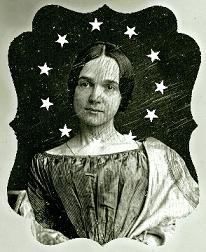
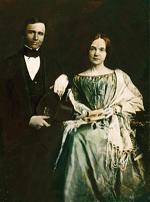
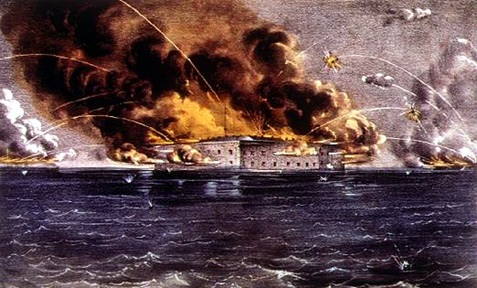 That Chesnut always returns to the sincere – the actual experience. It anchors her prose in a way mere observation or gratuitous fiction could not. Her ability to grab descriptive slices of people and events and weave them in so transparently makes this something more alive than mere history is usually thought to be.
That Chesnut always returns to the sincere – the actual experience. It anchors her prose in a way mere observation or gratuitous fiction could not. Her ability to grab descriptive slices of people and events and weave them in so transparently makes this something more alive than mere history is usually thought to be. 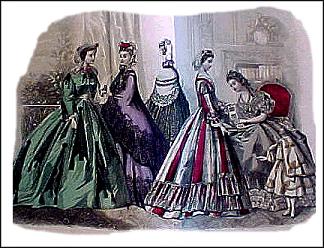
 “A satisfying faith” – once again, understated layers of meaning. Chesnut doesn’t directly comment, she portrays – with precision. I think she’s aware of us, all these years later, reading her through this… ‘documentation’ of events. Do you feel her Mona Lisa smirk on us?
“A satisfying faith” – once again, understated layers of meaning. Chesnut doesn’t directly comment, she portrays – with precision. I think she’s aware of us, all these years later, reading her through this… ‘documentation’ of events. Do you feel her Mona Lisa smirk on us? 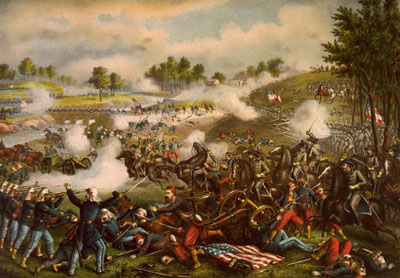 The standard American History book will tell you the South was overconfident after First Bull Run, etc. I’d argue Colonel Manning and his ilk were way ahead of the crowd on this one.
The standard American History book will tell you the South was overconfident after First Bull Run, etc. I’d argue Colonel Manning and his ilk were way ahead of the crowd on this one. 
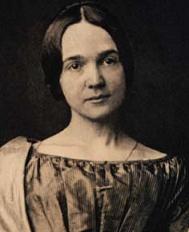
 The diary of Mrs. Chesnut is one of the essential primary sources of the Civil War, and still readily available if you’re interested. It’s quite accessible to the casual reader – you won’t even know you’re learning history, I promise.
The diary of Mrs. Chesnut is one of the essential primary sources of the Civil War, and still readily available if you’re interested. It’s quite accessible to the casual reader – you won’t even know you’re learning history, I promise. 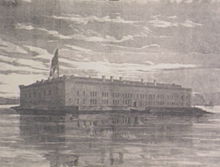 Never has a better case been made for teaching reading and writing, although her keen observations on human nature are perhaps harder to mandate.
Never has a better case been made for teaching reading and writing, although her keen observations on human nature are perhaps harder to mandate.  “Men were audaciously wise and witty.” What a marvelous phrase. It sounds like the Mad Hatter’s tea party, but instead of pure chaos, her description is redolent of forced fearlessness and social gilding. F. Scott Fitzgerald has nothing on the wealthy belle when it comes to writing dinner parties.
“Men were audaciously wise and witty.” What a marvelous phrase. It sounds like the Mad Hatter’s tea party, but instead of pure chaos, her description is redolent of forced fearlessness and social gilding. F. Scott Fitzgerald has nothing on the wealthy belle when it comes to writing dinner parties. 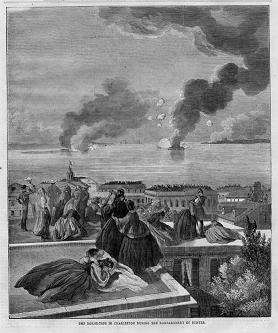 While the rest of the city – and, by proxy, the South – celebrates the opening rounds of what will no doubt prove a majestic little melee, one anonymous voice just out of view notices that they’re firing land weapons at a fort designed to withstand attack by foreign navies.
While the rest of the city – and, by proxy, the South – celebrates the opening rounds of what will no doubt prove a majestic little melee, one anonymous voice just out of view notices that they’re firing land weapons at a fort designed to withstand attack by foreign navies. 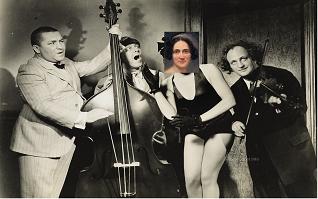
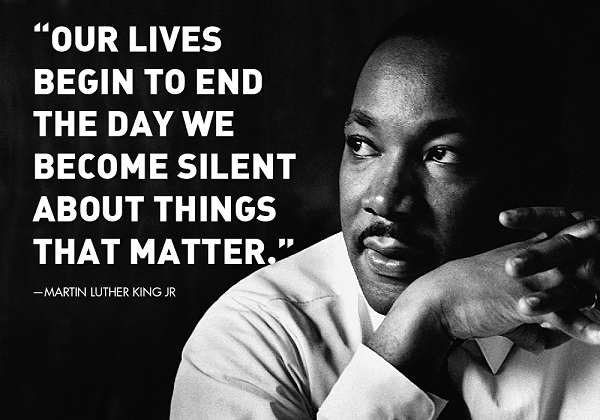
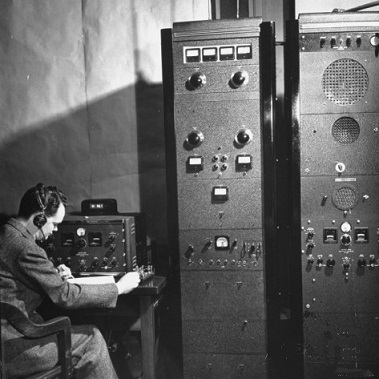 The FBI tapped King’s phones, and threatened his life. MLK was labeled un-American, a tool of foreign powers intent on subverting our way of life. Government leaders – those specifically chosen as our collective voice – condemned him as a liar, and officially categorized him with other ‘hate groups’. It wasn’t just J. Edgar Hoover or a handful of overzealous individuals; this was policy, from Attorney General Robert F. Kennedy on down. Why? National security, of course.
The FBI tapped King’s phones, and threatened his life. MLK was labeled un-American, a tool of foreign powers intent on subverting our way of life. Government leaders – those specifically chosen as our collective voice – condemned him as a liar, and officially categorized him with other ‘hate groups’. It wasn’t just J. Edgar Hoover or a handful of overzealous individuals; this was policy, from Attorney General Robert F. Kennedy on down. Why? National security, of course. 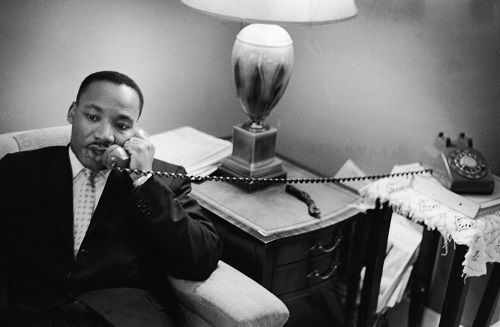 Today we celebrate King’s movement for its non-violence, but media at the time fixated on the sporadic exceptions. They painted even those outside the movement who destroyed property or threatened individuals as evidence of what MLK was really about. No matter how often King and others denounced bad behavior, the movement was constantly accused of supporting violence because they didn’t denounce it enough. Clearly they were a threat to… national security.
Today we celebrate King’s movement for its non-violence, but media at the time fixated on the sporadic exceptions. They painted even those outside the movement who destroyed property or threatened individuals as evidence of what MLK was really about. No matter how often King and others denounced bad behavior, the movement was constantly accused of supporting violence because they didn’t denounce it enough. Clearly they were a threat to… national security. 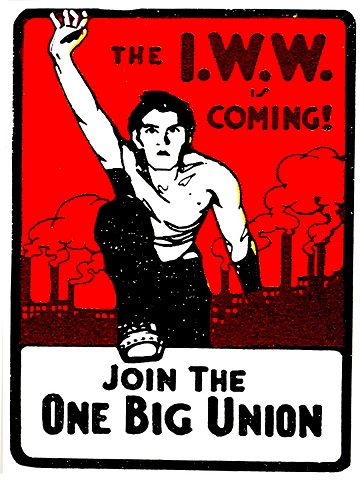 Fifty short years before King came into national consciousness, there was a labor organization called the International Workers of the World (I.W.W.) – nicknamed “Wobblies” for reasons long lost. They sought to organize unskilled workers in factories and fields, those marginalized due to limited education and no political power. Unlike other labor unions of the time, they weren’t about protecting certain skilled professions or choosing respectable members – they were the little people even among little people.
Fifty short years before King came into national consciousness, there was a labor organization called the International Workers of the World (I.W.W.) – nicknamed “Wobblies” for reasons long lost. They sought to organize unskilled workers in factories and fields, those marginalized due to limited education and no political power. Unlike other labor unions of the time, they weren’t about protecting certain skilled professions or choosing respectable members – they were the little people even among little people.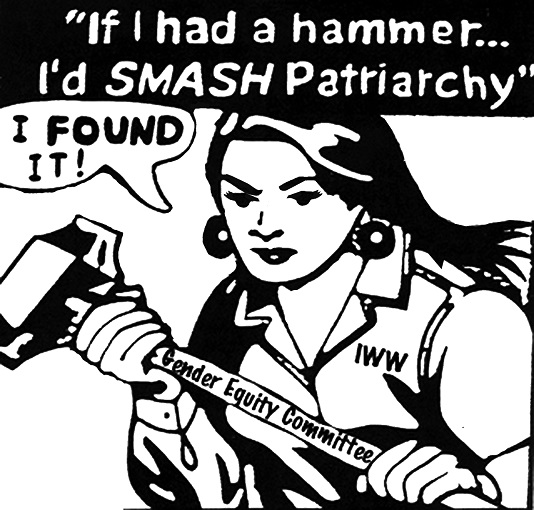 All violent acts done by labor or those of foreign descent became I.W.W. violence, no matter how condemned by the group itself, because… national security. And the I.W.W. was essentially a Socialist – maybe even Communist – organization at heart. They virulently attacked the Capitalism around them as more about entrenched power than competition and opportunity. The proverbial playing field, they argued, was in no way level.
All violent acts done by labor or those of foreign descent became I.W.W. violence, no matter how condemned by the group itself, because… national security. And the I.W.W. was essentially a Socialist – maybe even Communist – organization at heart. They virulently attacked the Capitalism around them as more about entrenched power than competition and opportunity. The proverbial playing field, they argued, was in no way level.